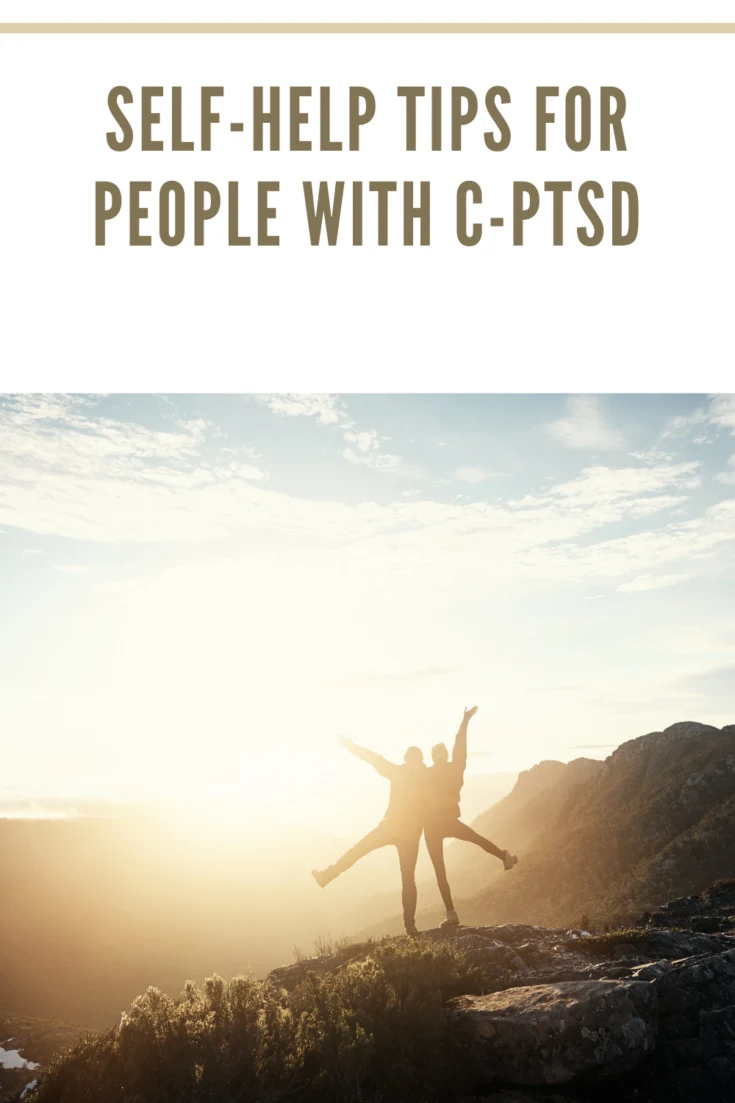Complex post-traumatic stress disorder (C-PTSD) is a severe mental health issue that you should not ignore. If you notice any signs of it, it would be best to contact your doctor and discuss your concerns with them. This way, you will receive professional advice and guidance and learn about the most effective ways to manage your symptoms.
However, as you cannot communicate with your doctor 24/7, you might also want to know a few self-help tips to help you become less anxious. If so, you came to the right place.
Below, you will find valuable advice ranging from getting to know your triggers and searching for peer support to trying out belly breathing and giving yourself some time to deal with the trauma of C-PTSD, explains verywellmind.com. Here are some of the best self-help tips you should consider:

Use CBD to Relax
If you want to bring more peace into your life, you can use CBD. This cannabinoid is a non-psychoactive compound extracted from the cannabis plant and will not make you feel high. Instead, according to Osiris Organics, it will help you relax and deal with your symptoms much better. It has been found to have numerous beneficial effects on human health, including relieving anxiety and depression.
There are many CBD products available on the market right now, but one of the most effective ones is CBD oil. If you want to try this product, make sure to do your research first and read about other people’s experiences with it.
However, using CBD-based products sublingually is one of the most convenient options. You can put three or four drops of CBD oil under your tongue and wait for it to absorb into your bloodstream. Once the oil stops tingling, you can swallow it.
It will take around 30 minutes to enter your system, so you should not expect immediate results. However, you will notice that your symptoms are no longer severe over time. As a result, you will feel much calmer and more confident in your abilities.
Understand What Triggers Your C-PTSD Symptoms
Since traumatic experiences cause C-PTSD symptoms, any trigger can cause them. However, if you search for what causes your symptoms to appear, you will do something about it.
For example, if you have noticed that only certain people trigger them, you may consider avoiding these individuals whenever possible. Additionally, you can find out more about your triggers and how they affect you. This way, you will learn more about your condition and will be able to handle it better.
Seek Peer Support
Peer support is another excellent self-help tip that you should consider. When you share your experiences with others who know what you are going through, you will feel less isolated and will be able to cope with the symptoms better.
You can join online groups dedicated to PTSD or C-PTSD, where you will be able to communicate with like-minded people. Alternatively, you might join local support groups (explained by helpguide.org), which will allow you to meet people in your area and share your stories. In any case, peer support will help you deal with C-PTSD symptoms much better as you will feel less lonely in your experiences and more confident about healing.
Try Out Belly Breathing
Belly breathing (also called abdominal or diaphragmatic breathing (see Harvard.edu to learn) is an effective stress management technique that can help you relax much faster and improve your mood. If you have anxiety symptoms, it would be good to learn this technique, as it will help you manage symptoms much better.
Start by lying down on a comfortable surface and placing a pillow under your head. Then, start breathing in and out through your nose for at least five seconds. Inhale deeply and exhale slowly while also making sure to tense your stomach muscles slightly as you breathe out. Repeat this process for at least five minutes until you feel calmer. Once the symptoms subside, you can stop doing it.
In addition to improving your mood, belly breathing can also help you improve your digestion and immune system and bring back a sense of calmness and relaxation. The technique is widely used in yoga and meditation, which explains why they are also so effective at reducing symptoms of anxiety and stress.
Take Time to Deal With The Trauma
Last but not least, take time to recover from the trauma and deal with symptoms of C-PTSD. Initially, try to list all of the signs that bother you the most and discuss them with your doctor as they will be able to give you advice on how to cope with them healthily. Later on, try to write down all of the things that trigger your symptoms and then think about ways to prevent them from appearing.
Also, remember what happened during the traumatic event and note any details that might trigger symptoms later on. That way, you will avoid such situations and reduce the chances of becoming anxious or stressed.
Conclusion
Complex post-traumatic stress disorder is a severe mental health issue that can have devastating effects on your life. If you are suffering from it, you might feel anxious or stressed most of the time, even if there is no reason to worry. You might also be unable to function correctly at performing daily tasks, not to mention finding it very difficult to make new friends.
Fortunately, there are quite a few self-help tips that you can use to deal with C-PTSD symptoms. Some of these tips include understanding what triggers your symptoms, seeking peer support, and trying out breathing techniques. Most importantly, remember about self-compassion and taking time to deal with the trauma.
